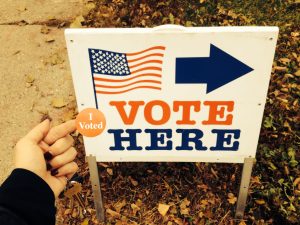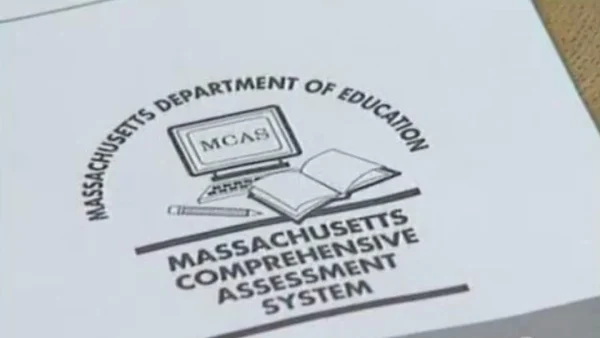Navigating the four ballot questions
The AMSA Voice editorial
Google image/Creative Commons license
Massachusetts voters are weighing in on four ballot questions today.
As Massachusetts voters head to the polls today, they are going to be faced with many tough decisions. While voting for President of the United States seems a daunting task in 2016, it is not the only choice voters face.
Ballot questions are a unique time for American citizens to directly participate in the passing of legislation. This year, Massachusetts voters are weighing in on some very pressing issues.
As a staff, we at The AMSA Voice have chosen to take positions on the four ballot questions.
Concerning Question 1, the website of the Secretary of the Commonwealth of Massachusetts states that it “would allow the state Gaming Commission to issue one additional category 2 license, which would permit operation of a gaming establishment with no table games and not more than 1,250 slot machines.”
The Massachusetts Expanded Gaming Act of 2011 approved up to three resort casinos and one slots parlor spread across the state. Should the new legislation be approved, the slots-only license would be issued to a facility in Southeastern Massachusetts.
We advocate voting against this legislation due to the harmful effect another license for gambling would have on the community.
The act of gambling has been known to disrupt family and community unity. Issuing another casino license, even if it is slots-only, further encourages community members to participate in gambling.
According to the Wall Street Journal, “more casinos have opened in the Northeast over the past decade than in any other part of the country.” One key side effect of this rapid expansion is that no one has been able to adequately analyze the effects of casinos on communities.
Casino lobbyists cite the promise of new jobs and increased revenue as benefits. The market, however, is saturated.
“The Northeast already is grappling with fallout from an increasingly congested casino market,” The Wall Street Journal stated. There is no obvious benefit here.
Question 2 is especially pertinent to the AMSA community. Legislation as a result of passage would “allow the state Board of Elementary and Secondary Education to approve up to 12 new charter schools or enrollment expansions in existing charter schools each year,” according to the Secretary of the Commonwealth of Massachusetts.
Although we are members of the charter school community, we advocate voting against Question 2. We know the value of a charter school education, and understand the power of the knowledge we gain from our school and its rigorous curriculum. We also know that charter schools can do a lot for someone coming from a less-than-perfect public school system.
At bottom, however, is the fact that public school systems are no longer giving students the education they deserve. Charter schools were created to give parents and students the choice to pursue a better education. In fact, one main argument for the approval of the new legislation is that community members should have a choice of a traditional public or charter education.
Charter schools offer advanced curricula and rigorous course work. A charter school, at its core, is a specialized public school. If the government has enough resources to help subsidize a parallel public school system that promises better education, why can’t they take the same resources and use them to better the current public school system?

Question 2 directly addresses charter schools in the commonwealth.
Creating a “new” public school system separate from, but theoretically equal to, the current one is not a solution to the problem of inadequate education.
There is also a question of finances. When a child leaves a traditional public school to go to a charter school, the sending school district still receives, in the first year, 100 percent of the money that it would have received had the child stayed. For the next five years, the sending district receives 25 percent of the money it would have received.
This is essentially a waste of resources in order to make the charter system politically feasible.
When asked about the current funding system for traditional public schools, Geoff Beckwith, executive director of the Massachusetts Municipal Association, told MassLive that “until the financing system is fixed, the ballot question providing for the expansion of charter schools would exacerbate and deepen the financial trouble that these local school systems are dealing with and the communities that are most impacted by charter school expansion are in most cases the most financially challenged communities.”
Question 3 proposes a law that “would prohibit any farm owner or operator from knowingly confining any breeding pig, calf raised for veal, or egg-laying hen in a way that prevents the animal from lying down, standing up, fully extending its limbs, or turning around freely. The law would also extend to those bringing products of animals confined to the aforementioned situations inside the state borders,” according to the Secretary of the Commonwealth of Massachusetts.
This measure is more about morality than anything else. We advocate voting to support passage of this legislation that would protect farm animals from unnecessary cruelty.
Because of the fact that no legislation has thus far been passed to prevent these unfortunate circumstances, some farm owners have taken advantage. With the approval of this law, farm animals will be protected from having to deal with terrible living situations. These animals are raised for slaughter and the least one can do is provide them with comfortable living situations.
The main argument opposing the passage of this legislation is the fear that prices of products will rise due to the new law. A small increase seems like a small cost to pay if it means that animals will be treated with respect during their short lives.
It has been one year since California enacted its cage-free egg law. When asked about the current egg prices in California, Stephanie Harris, Massachusetts director of the Humane Society of the United States, told CBS Boston, “You see that the cost of eggs today is on par with the national average, and in fact this summer dipped below the national average, and that’s backed up by numerous egg industry studies which show it would only increase the cost by about a penny an egg.”
Question 4 is the final measure facing Massachusetts voters. According to the Secretary of the Commonwealth of Massachusetts, “The proposed law would permit the possession, use, distribution, and cultivation of marijuana in limited amounts by persons age 21 and older and would remove criminal penalties for such activities.”
We choose to support the passage of this legislation to allow the legal use and sale of recreational marijuana. Though marijuana arguably is harmful to one’s health, legal regulation will replace a dangerous and illegal market with a system of licensed businesses that will ask for ID and only sell products to adults.
The underground market for marijuana comes with many issues. Other than the fact that it is illegal, it is inherently dangerous. Often times, confiscated marijuana is found to have harmful chemicals added to it. Regulation means quality control.
Many people believe that keeping marijuana illegal will keep it out of public hands. Prohibition did not work for alcohol when the 18th Amendment was passed and time has shown it does not work for marijuana.
Additionally, marijuana has proven to be less harmful than alcohol in a variety of studies. A study published in Scientific Reports in January 2015 found that the mortality risk associated with marijuana is approximately 114 times less than that of alcohol.
Allowing marijuana distribution to become legal also comes with significant financial benefits. According to taxfoundation.org, “Marijuana tax collections in Colorado and Washington have exceeded initial estimates, and a nationwide legalization-and-tax regime could see states raise billions of dollars per year in marijuana tax revenue.”
If similar legalization were to happen here, the state could raise significant and needed revenue. It could also save money in the criminal justice system.
“Officers spend more time arresting people with small amounts of cannabis rather than arresting people who are in possession of extremely harmful drugs in relatively large amounts,” according to the American Civil Liberties Union.
These arrests end up backlogging an already overburdened judicial system. The benefits here outweigh the negatives.

Jyotika is a senior, and hopes to enjoy her final year at AMSA. She thoroughly enjoys speaking and having a spirited debate, which is shown in her passion...







